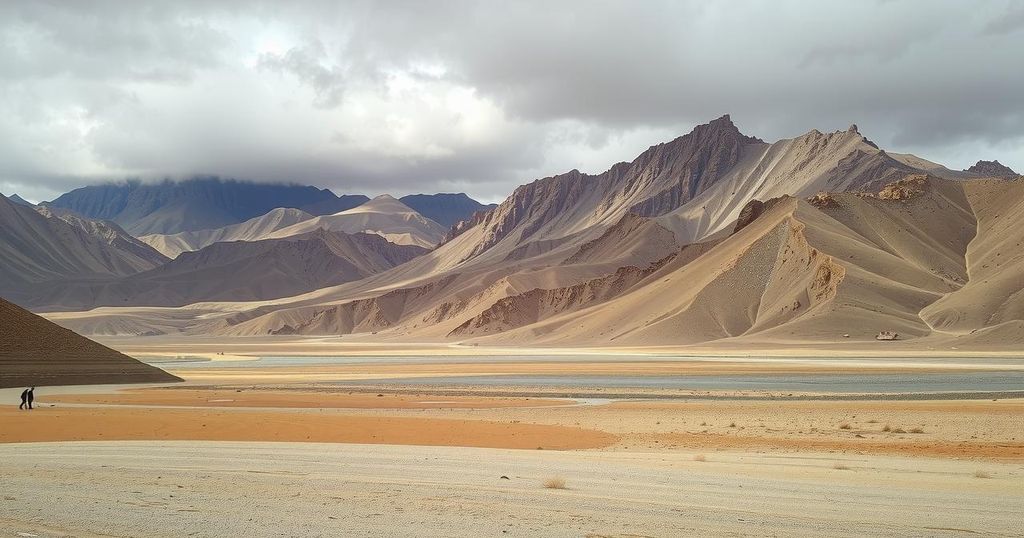Solar Year 1403: An Overview of Afghanistan’s Continued Isolation and Developments

The solar year 1403 has been marked by continued political isolation for Afghanistan’s Islamic Emirate, with unfulfilled conditions for recognition by the international community, yet claims significant diplomatic and economic achievements. The ongoing tensions with Pakistan regarding refugee repatriation highlight the humanitarian challenges, while the IEA projects a positive economic outlook despite international sanctions.
The solar year 1403, spanning from March 21, 2024, to March 20, 2025, has marked another period of political isolation for the Islamic Emirate of Afghanistan (IEA) government. Key conditions for international recognition—establishing an inclusive government, respecting human rights, specifically those of women and minorities, and combatting terrorism and drug issues—remain unmet.
This year saw the United Nations uphold its refusal to grant Afghanistan’s seat to the IEA, resulting in continued lack of global legitimacy. Furthermore, the International Criminal Court’s (ICC) prosecutor submitted a request for the arrest of the IEA’s supreme leader. Despite these challenges, the IEA claims significant achievements in various sectors and strengthened ties with multiple countries, asserting that such interactions serve as a form of recognition.
Though the international community continues to impose pressures and sanctions on the IEA, high-level delegations from several nations visited Afghanistan throughout the year. Notably, Iran’s Foreign Minister led a significant delegation to Kabul, signaling a new chapter in bilateral relations. Additionally, many former officials from the previous government have returned, while the IEA’s cabinet remains in a caretaker role.
The Supreme Leader, Hibatullah Akundzada, visited northern provinces, promoting public service among local officials. During discussions, the Deputy Prime Minister highlighted the Islamic Emirate’s commitment to ethnic diversity and unity. Overall, the IEA promotes the narrative that year 1403 was fruitful politically, despite the ongoing lack of international legitimacy.
In diplomatic efforts, acting Foreign Minister Amir Khan Muttaqi urged Pakistan to cease decisions harming the populace and emphasized resolving issues through dialogue. Notably, efforts to repatriate Afghan refugees from Pakistan have faced criticism from organizations like Human Rights Watch due to increased pressure and abusive tactics used by Pakistani authorities to force deportations.
In terms of economic progress, the IEA maintains that year 1403 was significant, citing a stable afghani currency, new investments, and improved trade relations despite ongoing sanctions. Major projects, including infrastructure improvements and the TAPI project, were highlighted as significant achievements. The Ministry of Commerce reported stable prices and a total export volume of $2 billion, although the World Bank indicates that the Afghan economy remains fragile.
In summary, despite numerous challenges and continued international isolation, the Islamic Emirate of Afghanistan claims advancements in government stability, diplomatic relations, and economic conditions during solar year 1403, asserting its capability to fulfill criteria for recognition as a legitimate state.
The solar year 1403 has been characterized by the Islamic Emirate’s efforts to assert its legitimacy and progress despite ongoing international isolation. With persistent claims of diplomatic achievements and economic stability, the IEA emphasizes its commitment to unity and inclusivity. However, the persistent sanctions and lack of recognition from the global community illustrate the complex challenges faced by Afghanistan moving forward. Continued dialogue with neighboring countries and attention to humanitarian concerns remain vital as the IEA seeks broader legitimacy.
Original Source: www.ariananews.af








